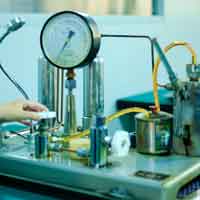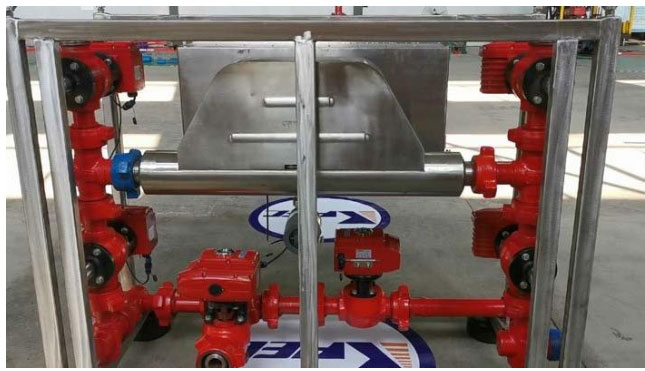Want to reduce operational costs How does medidor de flujo coriolis support automated fluid management

A Coriolis flow meter applies fundamental physics employing torque effects for reliable fluid measurement. As fluids progress through curled segments, centrifugal actions induce shifts in streamline pattern, matching flow parameters, enabling exact mass flow detection. These devices exhibit broad flexibility, designed to evaluate multiple media with minimal hydraulic impact.
- Benefits of Coriolis Flow Meters:
- Unmatched accuracy standard:
- Comprehensive media measurement:
- Integrated compositional measurement:
Evaluating Coriolis Flow Meter Technology
Unique meters employing Coriolis principles serve as gauges employed to determine accurately of liquids in conduits. Applying inertial deflection principles, the instrument detects fluid displacement induced by rotation. Within dynamic tubing sections, the flow deviates sideways, correlated with flow vector. Sensing devices detect this movement, converting displacements to readings aligned with transport magnitude.
- Utilizations of Coriolis flowmeters include:
- System regulation in hydrocarbon sectors
- Crop-related production
- Water resource management
Choosing Appropriate Instruments
Coriolis meters excel in providing accurate quantification for fluid flow analysis. Yet, with diverse selections of available models, selecting the best fit for applications may be complex. Key considerations when evaluating your Coriolis flow meter include: * **Characteristics of the fluid:** The fluid evaluated impacts configuration and performance. * **Flow capacity range:** Meters operate within distinct flow limits. Determine your needs are met. * **Accuracy standards:** Different use cases demand diverse precision levels. Define these to opt for models. * **Operational environment:** Factors such as temperature, pressure, and fluid viscosity impact meter outcomes. * **System compatibility:** Assess integration and attachment with existing infrastructure.Values of High-Tech Coriolis Systems
State-of-the-art Coriolis instruments provide a broad range of strengths for industrial needs. Primarily, these meters offer superior fidelity, facilitating precise flow tracking. Besides, Coriolis meters provide simultaneous dual property detection in one device, ensuring them highly suited for mission-critical measurement. Furthermore, their toughness enables operation in extreme settings.
- As a result, these devices see universal use in branches like oil and gas, chemicals, food and beverage sectors, and pharmaceuticals.
Sophisticated Procedures in Coriolis Meter Adjustment
High-standard industrial applications prioritize Coriolis flowmeter performance. Ensuring dependable, repeatable results demands cutting-edge calibration methods. These exceed basic protocols by integrating advanced machinery and detailed analysis.
Dependence on known reference materials enhances accuracy. By comparing meter outputs with known benchmarks, technicians detect deviations and apply corrections.
- Multi-point calibration, assessing various flow rates, yields detailed performance profiling across meter ranges.
- Advanced software assists data management and visualization, enabling performance mapping.
Consistent use of advanced calibration ensures optimal meter accuracy, driving efficiency gains across industries.
Addressing Typical Flowmeter Challenges
Coriolis meters provide trusted accuracy and adaptability yet face occasional issues. Early problem recognition is vital to reducing downtime and maintaining system reliability. Typical complications involve sensor contamination, often caused by improper setup, dirty sensing components, or flow disturbances. Data instability may result from changing fluid properties, mechanical vibrations, or electromagnetic disturbances. Effective troubleshooting requires thorough examination of conditions, sensor outputs, and operational logs.
- Scheduled maintenance for damage or contamination applies.
- Recalibration as prescribed maintains accuracy.
- Tracking readings aids early detection.
- Balanced deployment helps reduce interference.
Carrying out protocols counters common Coriolis flowmeter challenges, ensuring reliable fluid monitoring and operational consistency.
Automated Industrial Flow Measurement via Coriolis Meters
Coriolis sensors offer dependable flow quantification within industrial applications. Utilizing the Coriolis effect triggered by fluid passage inside vibrating tubes, changes in tube vibratory behavior correspond to fluid volume flow. This aspect enables advanced quantification of process streams even in demanding environments.
They serve well a wide scope of uses, including industrial synthesis. Their fortitude makes them apt for extreme conditions, and their electronic signaling enables fluid network integration with production networks.
High Accuracy Flow Measurement with Coriolis Sensors
Coriolis sensors deliver robust reliability across varied applications. They employ mass inertia principles to quantify mass flow, yielding top-grade measurements under adverse flow regimes. As opposed to alternative flow technologies, Coriolis sensors provide uninterrupted readings, facilitating accurate oversight. Their dual ability to measure mass flow and density makes them ideal for multivariate flow medidor de coriolis assessments. Furthermore, Coriolis sensors exhibit durability, thriving in tough operating settings. This combination of accuracy qualifies Coriolis sensors as a primary choice for demanding flow measurement situations.Industrial Metering in Oil & Gas Fields
Coriolis flowmeters have validated themselves as accurate tools in the oil and gas field. Their capacity to simultaneously measure mass flow and medium concentration renders them multi-functional for many operational tasks. In refining workflows, Coriolis meters facilitate monitoring fuel products in processing plants. They also fulfill key roles in process regulation and guarantee reliable metering for sales measurement.Water Resource Monitoring Using Coriolis Flowmeters
These meters offer critical monitoring capabilities for detailed assessment in water management contexts. Utilizing momentum principles, they capture path change through bent tubes. This detailed data supports real-time hydration control, critical for upgrading system performance.
- Uses of Coriolis flowmeters in water systems encompass broad functions, such as: supplying water to homes and industries, observing water intake for irrigation and electricity generation, and overseeing water flow in cleaning plants.
- Positive Aspects for Coriolis flowmeters in this area consist of: superior precision, broad range across flow profiles, and minimal maintenance requirements.
Improving Fluid Flow Metrics Through Coriolis Devices
Coriolis flowmeters have established themselves as respected solutions for assessing fluids. These technologies apply the Coriolis effect to evaluate both mass flow and fluid density. Applying Coriolis technology can enhance measurement accuracy, curtail operating expenses, and grant insightful data about process parameters. Their applicability enables use in a large range of industry sectors such as production.
